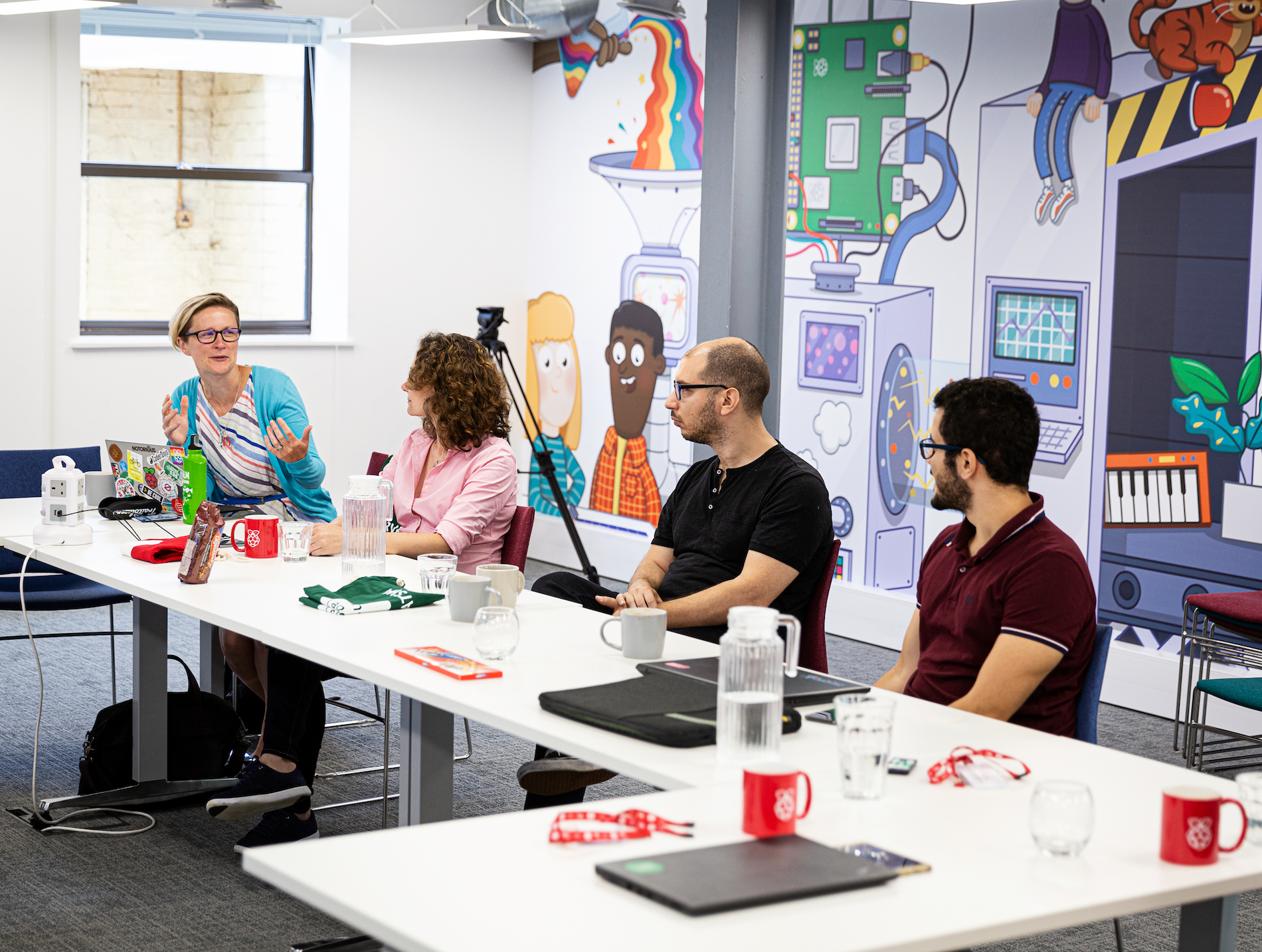Jo Hodge is an experienced primary teacher working in the north-west of England. She is also a Digital Schoolhouse Regional Lead and has a particular interest in play-based learning.
Last year, I was given the unique opportunity to take part in a research project exploring how to adapt computing resources to make them culturally responsive to students. Having a vague idea of what culturally relevant research meant, I wanted to find out more about this topic and explore how this would impact my teaching. Once I registered to participate, I decided to use this for my performance management as our headteacher is extremely keen on us using research to inform our practice – rightly so!
Highlights from the research workshop
After a long drive to the research team’s office, it was lovely to be greeted by many colleagues, some of whom I knew well – plus there were pastries! On a serious note, it is always great to have the time to just talk to others about what they are doing and how things are going with them. The day consisted of us all considering what cultural relevance means to us as teachers and how we can apply this to our current planning. Being sat with a small group of like-minded Year 4 teachers, it was a pleasure to share ideas and have enough time to really unpick, and then adapt a teaching resource.

Every step of the way, we were supported in our discussions by a member of staff from the Raspberry Pi Computing Education Research Centre (RPCERC) team, which helped us to maintain focus on the task ahead. Everyone’s ideas were aired and as a team we finalised what we would keep or change. Our suggestions were then presented to the whole group. As we all know, there are never enough hours in the day to truly explore lesson planning in depth and consider how we can improve the resources to make them accessible to all. In truth, the best lessons are those where you have fully adapted it and made it your own. However, I am realistic and understand we cannot always do this to such an extent as primary teachers no matter how hard we try – so it was amazing to have an opportunity to do this as part of a research study.
Implementing the adapted resources
Once back at school, because of all the fantastic work we had completed at the workshop, I felt inspired to teach the unit of work. I delivered all the lessons to two Year 4 classes and evaluated after each lesson what went well and what could have been better. It was interesting to see what the classes struggled with – mostly mouse skills and saving completed work. Much of the project involved cutting, cropping and pasting, so mouse skills were vital to be able to do this. By the end of the project, they fully understood the key photo editing techniques but found it challenging to implement them because of these barriers. They loved the ideas we adapted such as creating their own avatars using animals, and lots of laughter filled the suite during the lessons. They produced some super work and improved their mouse and saving skills by the end of the unit. Clearly, taking the time to look carefully at a resource means that you do reap the benefits!

On completing the project, it was insightful to meet with the research team again and explore how it all went. Having dedicated time for reflection is important and enables you as an educator to consider your practice. I don’t know about anyone else, but I do learn from my mistakes so having a moment to reflect is invaluable.
Next steps and reflections
This next term, I will be presenting this research project to our school staff, and my focus will be on what cultural relevance means to them and the possible barriers to achieving this. The most valuable part of this research for me was to consider what impact the lesson would have on children. One thing that stood out to me was how excellent our staff are already at making our teaching culturally relevant and ensuring that all children feel valued and respected.
In summary, it has been so insightful being part of a research study and having the opportunity to work with teachers from other areas of the country. The chance to share good practice can never be underestimated and I found it extremely useful in gaining a better understanding of what cultural relevance is. Having the time to think and discuss is precious for teachers and yet so inspiring! Sometimes, it is brilliant for someone just to say, yes you are doing the right thing!